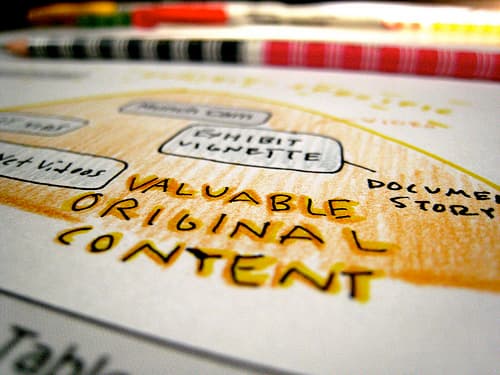What Good Content Looks Like: Google Ranking Factors 2014
What does good content look like? To state the obvious, good content is what’s relevant and useful, and quality content is becoming increasingly important. This seemingly obvious statement is actually becoming a determining factor of how your page is ranked among millions of other similar pages and competitors. Google Ranking Factors 2014 published by Searchmetrics labs offers insight on several defining characteristic that separate highly ranked content from chaff.
In the past, keywords dominated the SEO market, and will continue to be the basis for search. But according to the study, there has been a shift away from pure keyword strategies to include more complex topics. The quality of a page isn’t something that is easily measurable by metrics alone, but there are certain indexes search engine metrics look for.
Google ranks pages based on keyword relevance. This is not to say that repeating a single keyword numerous times will drastically increase your page’s ranking. In fact, if keywords are used too frequently, it is recognized as spam. Searchmetrics says,
“The development of search continues to move away from the meaning of a single keyword towards analysis of so-called ‘content clusters’ … that can be based around keywords and developed naturally into content copy.”
This seems too complicated an explanation for keyword relevance, but it makes sense once you stop thinking about it too hard. It’s bad to plug the term you are talking about every sentence, but like any decent piece of writing, you need to explain it thoroughly and refer to it as often as necessary to drive your point home.
Research also found that, although there is no direct correlation, content on higher ranked pages are generally easier to read. This legibility is measured by the Flesch-value for English: a text that has the value anywhere between 0.0 and 30.0 is best understood by university grad students; a text of 90.0 can be easily understood by an average 11-year-old student. The Flesch-value of U.S. search results turns out to be about 73/74, which is easily understood by average 13- to 15-year-old students.
Moreover, content length increased significantly. Whereas top Google ranked pages averaged from about 500 to 600 words in 2013, in 2014, highly ranked pages averaged between 900 and 1,000 words.
What it comes down to is Google rewards good content. It’s not about how well you abide by guidelines; it’s about having something to say and saying it well. It’s about time real-world values are applied for digital conversations.
